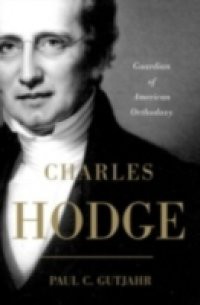Charles Hodge (1797-1878) was one of nineteenth-century Americas leading theologians, owing in part to a lengthy teaching career, voluminous writings, and a faculty post at one of the nations most influential schools, Princeton Theological Seminary. Surprisingly, the only biography of this towering figure was written by his son, just two years after his death. Paul C. Gutjahrs book is the first modern critical biography of a man some have called the Pope of Presbyterianism. Hodges legacy is especially important to American Presbyterians. His brand of theological conservatism became vital in the 1920s, as Princeton Seminary saw itself, and its denomination, split. The conservative wing held unswervingly to the Old School tradition championed by Hodge, and ultimately founded the breakaway Orthodox Presbyterian Church. The views that Hodge developed, refined, and propagated helped shape many of the central traditions of twentieth- and twenty-first-century American evangelicalism. Hodge helped establish a profound reliance on the Bible among Evangelicals, and he became one of the nations most vocal proponents of biblical inerrancy. Gutjahrs study reveals the exceptional depth, breadth, and longevity of Hodges theological influence and illuminates the varied and complex nature of conservative American Protestantism.

